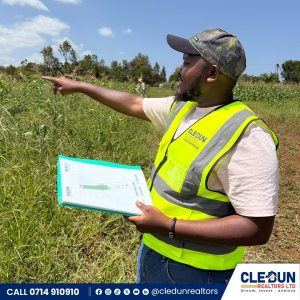By Isabella Maua
Women from Bungoma County have lauded Ripple Effect Kenya for empowering them with agricultural knowledge and taking part in fighting gender-based violence in the region.
Speaking to Newsline during a field day at Chebukwabi, Catherine Wamalwa, a beneficiary of Ripple Effect from Daraja Mungu, acknowledged that her life has changed since she joined the I4RR project.
“For a long time, we have lived in abject poverty with no knowledge or skill to change the situation; however, since our women’s group started working with Ripple Effect a year ago, the situation has been alleviated,” avowed Wamalwa with a beam.
Catherine Waliaula, a member of Namwela Yetana Women Group, divulged that Panicum mombasa grass, which was introduced to them as a climate-smart fodder crop, has turned their lives around completely.
“I don’t have cows of my own but I have planted Panicum Mombasa grass, which is very nutritious to chickens, goats, donkeys and sheep also cows not only produce more milk after feeding on this grass but also their dung is very good for manure,” observed Nekesa.
She goes on to disclose that she often offers prospective farmers who wish to embark on the profitable adventure a bundle of Panicum Mombasa grass seedlings for 300 Kenyan shillings.
The host farmers of Kopsiro, Caroline and Stephen Cheuno, admitted that their extensive knowledge gained from their affiliation with Ripple Effect has given them a formidable presence in their village.
“At first I didn’t know the importance of this project, but when I started seeing my wife preparing different types of vegetables right from our farm and even selling surplus to the neighbours, I added her a portion of land to expand the project,” said Stephen.
He further admits that since they adapted the climate-smart farming method on their model farm, his health and that of the family have greatly improved.
“I can say without fear of contradiction that these organically produced crops are really nutritious and have played a big role in bringing together families since we work together harmoniously to ensure our farm is attended to and surpluses reach the market on time,” he reiterated.
His sentiments were echoed by Wata Bota, a member of Uptime Youth Group, who accentuated the importance of redefining gender roles.
“Ripple Effect brought about Transformative Household Methodology where all family members participate in activities at the farm to maintain harmony and eliminate gender-based violence,” highlighted Bota.
Assistant County Commissioner for Kopsiro, Stephen Kihara, encouraged men to set aside a portion of land for their wives to exercise what they have learnt during these field days to ensure food security.
“Men and youth should take up the challenge to be part of fighting GBV and also end the cycle of poverty which causes vulnerability among teenagers, hence early pregnancies and high HIV/AIDS infections,” asserted Kihara.
Kimilili’s Deputy County Commissioner, Rose Nyakwara, commended Ripple Effect for their successful project and pledged to educate chiefs and other local officials on the value of adopting climate-smart, sustainable agriculture.
“These projects have really changed lives here because they are near homes, they provide food security for families around, and the management of the garden is cost-effective,” she observed.
The primary objective of Ripple Effect Kenya, according to Titus Sagala, the National Director, is to make sure that households have access to enough wholesome food and may sell any extra to boost the local economy.
“We strive to manage climate change by using a focal area approach across wards, for now we’re working with residents of Kibingei, Namwela and Chepyuk, he reported.
He further mentioned that they are partnering with the national and county governments to ensure residents remain empowered even after the project ends in 3 years.
Priscilla Khisa, the public health officer from Bungoma County, upheld that they are working closely with Ripple Effect to enable them to expand their wings and reach more wards across the county.
Beatrice Were of Ripple Effect cited that they are targeting 70% of women and 30% men and youths to benefit from the I4RR project (Scaling Innovations 4 Reduced and Redistributed Women’s Unpaid Care Work in Smallholder Livestock Farming) so as to achieve gender and social inclusion in the society.
“We teach our farmers different technologies so that they can use to produce various types of nutritious vegetables, fruits, legumes and fodder crops for their donkeys and cattle,” she reiterated.
In order to achieve sustainable climate-smart agriculture, it is imperative that women and young people, who frequently feel marginalised, reinvent gender roles. With the help of Ripple Effect and other stakeholders, this dream has yet to come true.







More Stories
Safaricom Director Honored with Global Social Innovation Award
Cledun Realtors Expands Thika Housing Project with Prestige Court Phase II
Former Ichagaki MCA Dr. Mwangi Joins UDA for Murang’a Senatorial Race